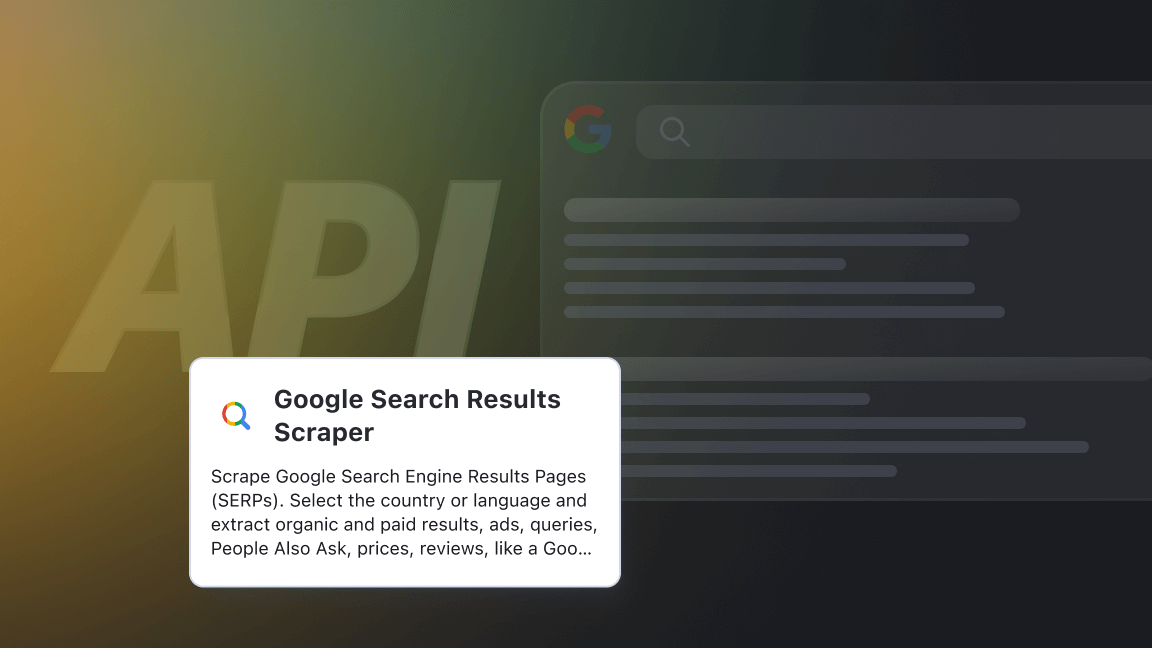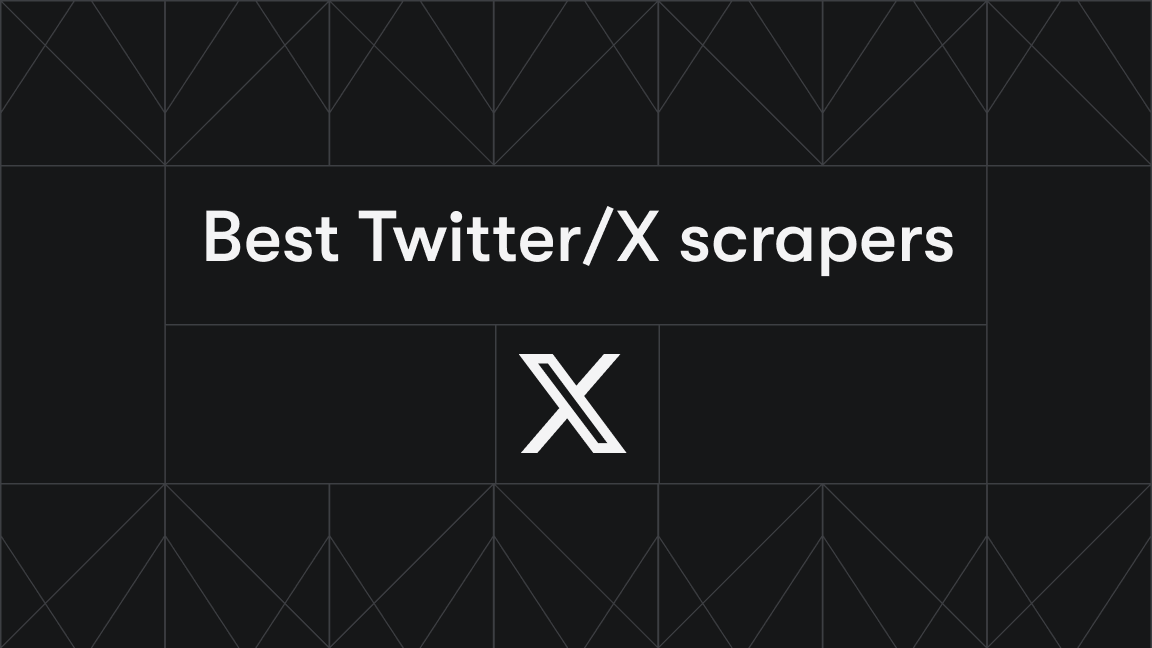Store owners and pricing teams can only make accurate decisions when they have continuous, reliable visibility into competitor pricing and stock movements. But in most organizations, that visibility is fragmented or delayed: Manual checks, ad-hoc spreadsheets, and inconsistent data sources create blind spots that directly impact the strategy.
Operating without dependable data introduces several risks:
- Loss of margin: Competitors may drop prices or adjust stock long before you notice, forcing reactive rather than strategic pricing changes
- Promotion failures: Discounts and campaigns underperform when they aren’t benchmarked against competitors
- Assortment gaps: Without monitoring, it’s easy to miss when competitors introduce new variants, bundles, or alternative listings that shift customer expectations.
Direct integrations with marketplace APIs rarely solve the problem. Many major platforms restrict data access or expose only a subset of the fields you actually need. Smaller retailers often provide no API access at all, making automated data collection impossible.
E-commerce price monitoring tools close this gap by automatically extracting pricing, stock, and product metadata directly from competitor websites or marketplaces. They convert raw webpages into structured, query-ready datasets that can feed repricing engines, BI dashboards, and demand forecasting tools.
Below, we compare five price monitoring tools - Apify’s E-commerce Scraping Tool, Prisync, Price2Spy, Import.io, and Minderest - based on technical capabilities and limitations.
At Apify, we help retailers, brands, and pricing teams solve problems in large-scale e-commerce price monitoring. If you need a custom, reliable data extraction workflow tailored to your competitors, products, and platforms, our Professional Services team can build it for you. Request a demo or discuss your project with our team.
Best e-commerce price monitoring tools - quick comparison
Here’s how all the price monitoring tools compare in pricing, core capabilities, and data structure.
| Tool | Pricing | Key features |
|---|---|---|
| Apify’s E-commerce Scraping Tool | Pay-per-use; ~$0.50 per 1,000 listing pages; credits-based pricing | No-code scraper; supports all e-commerce sites; exports in JSON/CSV; integrates with Make, Zapier, or API |
| Prisync | From $99 for URL-based monitoring (up to 100 products) | Monitors competitor URLs; syncs with Shopify/Magento/WooCommerce; dynamic pricing suggestions |
| Price2Spy | From $57.95/mo for up to 2,000 URLs | Automated URL monitoring (daily/hourly); historical pricing data; advanced reporting |
| Import.io | From $399/mo for 5,000 queries | Visual extractor builder; point-and-click training; API for integration with BI tools |
| Minderest | Custom quote; no public pricing; no free trial | Multi-country price + stock monitoring; MAP/MSRP compliance alerts; custom dashboards |
1. Apify’s E-commerce Scraping Tool
E-commerce Scraping Tool is a no-code, all-in-one solution for extracting product and pricing data from virtually any online store, marketplace, or catalog. It supports major platforms, such as Amazon, Walmart, IKEA, and eBay, as well as regional and niche retailers. That makes it ideal for price monitoring, competitor analysis, and market research. With just a few inputs, you can configure and run scrapes without writing a single line of code. The tool delivers clean, structured datasets that include product titles, descriptions, prices with currency, SKUs, variants, stock status, images, and URLs, ready for export or direct integration with BI tools and dashboards.

The tool also offers an AI summary feature, allowing you to get more out of your data, using natural-language instructions:

With a straightforward integration with Google Drive, you can scrape prices on schedule and send data automatically to Google Sheets. With the right configuration, you will get fresh data daily, weekly, or at any interval you choose - without any manual input.
Pricing: pay-per-event pricing model; $0.50 per 1,000 listing page scraped; final price depends on the type of scraped data and additional features such as residential proxy use or browser rendering.
Key features:
- Pre-built scraper with no-code configuration: You enter product or category URLs and click Start to run the scraper
- The $5 usage included in the Free plan lets you scrape roughly 800 product URLs
- You can download results in JSON, CSV, Excel, or integrate via API - ideal for sending structured data to dashboards like Power BI or Tableau
- Multi-shop support: Works major marketplaces (including Amazon, Walmart, eBay, Alibaba, Etsy) and local e-shops worldwide, so you don’t need to use separate scrapers per store
- Apify Console enables automation with tasks, schedules, and automatic exports
- AI summary feature enriches your dataset with additional information
- Review scraping is available - you can extract customer reviews using product URLs, review listing URLs, or keyword searches
- Integrates with data analytics dashboards and platforms such as Zapier, Make, n8n, as well as other ready-made automation tools on Apify Store
- Uses proxies, handles pagination, and bypasses common anti-bot measures automatically
Limitations:
- Reliant on Apify’s updates: If an e-shop changes the HTML structure, you depend on Apify’s devs to do the fixes
- Complex pricing - additional fees for review scraping, browser rendering, or scraping products from specific websites such as Amazon
2. Prisync
Prisync integrates directly with your e-commerce platform to pull in your full product catalog - including SKUs, variants, pricing fields, and availability data. Once connected, the system maintains a continuous sync between your store and your Prisync account, keeping product attributes, pricing rules, and inventory status aligned.
From the dashboard, you can monitor competitor URLs mapped to each SKU, track price and stock deltas in near-real time, and trigger automated repricing workflows based on predefined conditions or margin constraints. Prisync supports multi-channel inputs - works with Shopify, Google Shopping, Amazon, and more - and features an API-first architecture for easy integration.

Pricing: Based on channel or URL monitoring, starting from $99 for up to 100 products. A comprehensive solution for monitoring sales channels and URLs costs $299 minimum
Key features:
- Supports uploading lists of competitor URLs and monitors price changes, stock availability, seller information, and logs each crawl event so you can review historical data points
- Integrates with Magento and Shopify, pulling the store’s product catalogue directly, with variants, SKU/EAN identifier, and inventory status
- Daily price change notifications available
- Variant and product-matching tracking (size, colour, and more) - data extracted from complex sites using drop-down menus, additional rows, or clickable buttons
- Historical data available for up to one year (available on the Platinum plan only), including discount timelines
Limitations:
- Pricing plans are inflexible and depend on which setup you want to use - either based on URL tracking, sales channel, or hybrid
- For sites with heavy dynamic content/variant complexity, custom handling or special configuration is needed - Prisync struggles with pages that don’t show the price in static HTML
3. Price2Spy
A platform designed for enterprise-level price monitoring - ideal for retailers, manufacturers, and pricing teams managing large product catalogs and tracking multiple competitors. Once you provide competitor URLs or search queries, it performs automated checks at fixed intervals (hourly, daily, or custom) and extracts pricing, availability, and promotional data. You never see or touch the scraping process itself - all results are displayed in an interactive analytics dashboard that highlights price changes and competitive movements in real time. The tool stores all historical data for trend analysis and reporting.

Pricing: From $57.95/month for up to 2,000 URLs
Key features:
- Automated price monitoring: Tracks competitor product URLs (scraping price, availability, promotions) on a defined schedule (daily, hourly, or custom intervals)
- MAP features - alerts in case a minimum advertised price is violated
- Historical pricing charts and analysis to visualize trends and fluctuations
- Notifications when a competitor dips below a certain price threshold or changes offer conditions
- Data can be exported in CSV/Excel/JSON formats, or via API
- Multi-competitor tracking: You can monitor several competitor SKUs against your own to identify pricing gaps
Limitations:
- No workflow control. You get structured data and analytics, but the scraping process is fully managed
- Built for price tracking only - doesn’t scrape product information, reviews, or images
4. Import.io
Import.io uses a visual extractor builder. You paste a target URL (such as a product page or category page), then select the fields you want to capture (like price, title, image, seller), and the system learns the pattern and builds a structured extractor you can run without code. Once trained, the scraper can identify and pull the same data fields from hundreds or thousands of similar pages. You can scrape key attributes apart from prices - such as product name, currency, URL, SKU, rating, reviews, availability, category, brand, image URL, and the last update timestamp.

Pricing: $399 / month for 5,000 queries
Key features:
- Point-and-click scraper training - you select relevant fields directly on the web page
- You can schedule a change report to run daily and track when prices change, or items are removed or added to the category
- Visualizing the data in charts and graphs available via Import.io Insights
- Export available in JSON, CSV, Excel, Google Sheets; API access included
- Designed for large-scale projects (can handle thousands of queries and terabytes of data on a cloud-hosted infrastructure), which is relevant when monitoring large competitor datasets
- Real-time preview of extracted data before you run full-scale jobs
- Alerts when predefined thresholds are met or when extractor fields break
Limitations:
- Designed for enterprise-level scraping, reflected in the pricing plans - not suitable for smaller companies with limited budget; no free tier available
5. Minderest
Robust, enterprise-level solution positioned as an AI-powered price intelligence tool and a digital-shelf analytics platform. It’s built to handle multi-country catalogues across any language or currency. The system collects pricing, stock, assortment, and promotional signals daily or multiple times per day, normalizes them, and presents metrics via dashboards, alerts, and AI-assisted analysis. Custom solutions are also on offer - when the machine reaches its limits, humans can take over and review the products to match them manually within the platform if needed.

Key features:
- Competitor price and stock monitoring across different countries/languages/currencies - along with SKUs, variants, shipping/delivery terms
- Monitoring of MAP/MSRP pricing rules for compliance
- Pricing optimization features: AI-powered modules (e.g., forecasting, elasticity analysis)
- Multi-country, multilingual, multi-currency monitoring
- API and integrations - you can feed data into your own BI/ERP systems
- Visual dashboards to interpret data, identify trends, alerts for price drops or competitor actions
- Works with any e-commerce site, price comparison sites such as Google Shopping, marketplaces such as Amazon or eBay, shopping apps, and B2B portals
Limitations:
- Lack of transparent pricing, no free trial (only demo upon request)
Choose the best tool for your use case
Some of the tools covered here are built for flexible, site-agnostic scraping, while others focus on catalog-level tracking, high-volume URL monitoring, or enterprise-grade price intelligence.
| Use case | Recommended tool |
|---|---|
| Monitoring prices across many different e-shops or marketplaces (Amazon, Walmart, IKEA, regional stores), scraping detailed product information | Apify’s E-commerce Scraping Tool |
| Small–mid size online stores needing monitoring + simple repricing tied to their own catalog | Prisync |
| Large retailers with huge URL lists (thousands+) needing stable scheduled monitoring | Price2Spy |
| Enterprises that need custom extractors, digital shelf analytics, and large-scale data collection | Import.io |
| Brands enforcing MAP/MSRP and monitoring global resellers/marketplaces | Minderest |
Key considerations
While price monitoring tools might offer you raw data acquisition or full pricing intelligence, the best choice depends on your required scale, automation depth, and the complexity of the sites you need to monitor.
Apify’s E-commerce Scraping Tool provides a flexible extraction layer for teams needing custom workflows or coverage of complex, dynamic, or niche competitor sites.
It can not only monitor prices, but also scrape detailed product information and reviews across multiple e-commerce websites, from listings or by using keywords, in a single run. You can use the scraper’s UI for simplicity, or run it programmatically via API for integration into your workflow.








